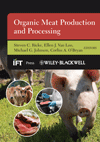The state of Alabama is investigating suspected cases of bird flu in three northern poultry flocks and has introduced some restrictions on the transportation of birds, reports Bloomberg News. Last week, a commercial chicken flock in Tennessee, located near the Tennessee-Alabama border, was destroyed after testing positive for the highly pathogenic strain of avian influenza.
A commercial chicken-breeding farm in Lauderdale County and a backyard flock in Madison County are among the facilities under investigation, the Alabama Department of Agriculture & Industries said in a statement Tuesday. The state is also probing a flea market in Jackson County and has issued an order limiting the movement of some poultry.
According to the department, the first two investigations were on two separate premises in north Alabama. One flock of chickens at a commercial breeder operation located in Lauderdale County, Ala. was found to be suspect for avian influenza. No significant mortality in the flock was reported. The other premise was a backyard flock in Madison County, Ala. Samples from both premises have been sent to the USDA National Veterinary Services Laboratories (NVSL) in Ames, Iowa and are being tested to determine presence of the virus.
The most recent investigation began following routine surveillance while executing Alabama’s HPAI Preparedness and Response Plan. USDA poultry technicians collected samples at the TaCo-Bet Trade Day flea market in Scottsboro located in Jackson County, Ala. on Sunday, March 12. Samples collected were suspect and those samples are on the way to the USDA Lab in Ames, Iowa.
“Following the 2015 avian influenza outbreak in the Midwest, planning, preparation, and extensive biosecurity efforts were escalated in Alabama. Industry, growers, state and federal agencies and other stakeholders have worked hard to maintain a level of readiness,” said Commissioner of Agriculture and Industries John McMillan. “Our staff is committed to staying actively involved in the avian influenza situation until any threats are addressed.”
Source: Bloomberg, Alabama Department of Agriculture and Industries







